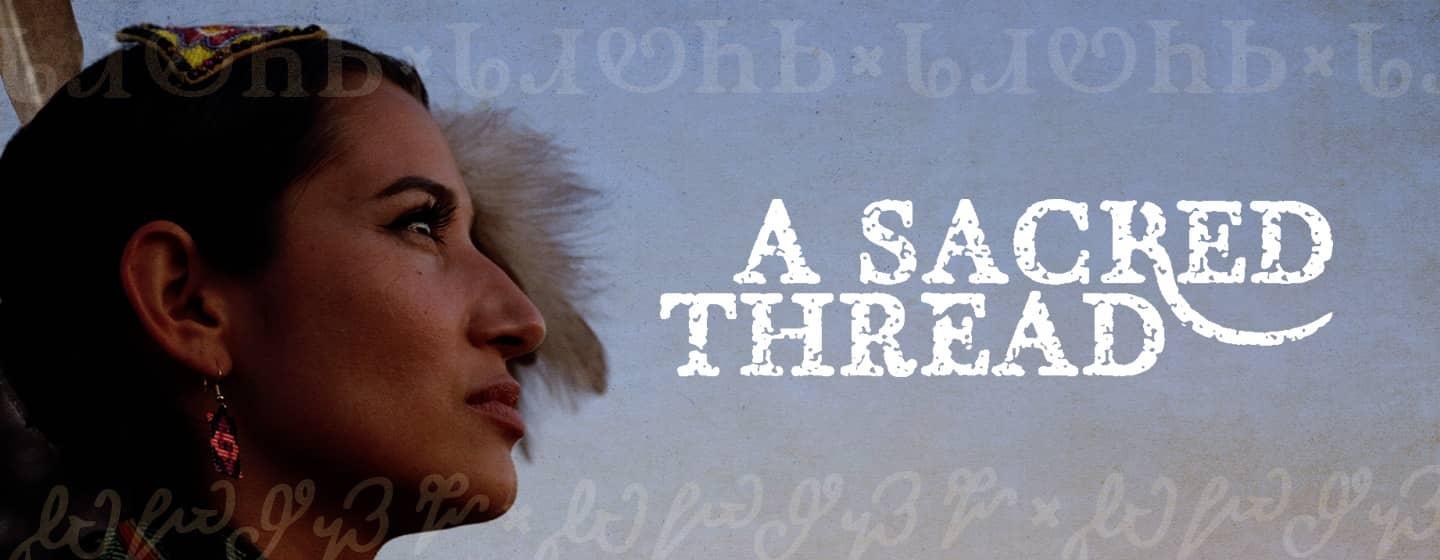PBS North Carolina Film About the Snowbird Cherokee of Western NC to Premiere July 31


FOR IMMEDIATE RELEASE
RESEARCH TRIANGLE PARK, NC, 7/15/2025 — PBS North Carolina announces A Sacred Thread, a new original documentary about the Snowbird Cherokee of western North Carolina. The film follows the community as it fights to preserve its language, customs and ancestral traditions before they disappear. A Sacred Thread premieres Thursday, July 31, 9:30 PM, on PBS NC, online and on the free PBS app.
“A Sacred Thread is an undertold and immersive story about the Snowbird Cherokee and their determination to pass on their traditions to a new generation with mentorship from their Elders,” said Heather Burgiss, executive producer of the film and PBS North Carolina’s Director of Original Productions. “PBS North Carolina is grateful to the Snowbird community for allowing us this rare look at the sacred connections that continue to define their identity.”
Through intimate storytelling and commentary from members of the Snowbird Cherokee, A Sacred Thread offers a powerful portrait of a resilient community safeguarding its heritage. The Snowbird Cherokee have preserved their original dialect for more than 10,000 years. Today fewer than 140 Cherokee speakers remain on their homeland; their average age is 65. A Sacred Thread spotlights Dadiwonisi, a Cherokee-language program that pairs Elders with young learners to preserve the dialect and other Cherokee traditions before they’re lost.
“The Snowbird Cherokee are the original North Carolinians,” said Brooks Bennett, director of A Sacred Thread. “The Snowbird never stopped being who they are, even when the world tried to rewrite their story. I hope viewers are inspired by their resilience and the strength that comes from staying rooted to the land of your ancestors.”
The Snowbird Cherokee (GWY) reside on over 2,200 acres scattered throughout Graham County, North Carolina. (GWY translates to “Tsa-la-gi,” or “Cherokee,” in the Cherokee language.) According to the State Library of North Carolina, between October 1838 and March 1839, the federal government forcibly removed the Cherokee people from their lands in western North Carolina. About 11,000 Cherokee were relocated due to the Indian Removal Act in what became known as the Trail of Tears. Some Cherokee stayed in North Carolina, however, including many who hid in the Great Smoky Mountains. The Snowbird Cherokee are their descendants.
“Our community has been a relatively quiet, unknown group, and the knowledge or lack of knowledge about the Tutiyi (Snowbird community) exists even today within our Tribal membership,” said Gil Jackson, First Language speaker and Cherokee language teacher. “While many people have read or heard about the Trail of Tears, very few know the beginning point, which is in our community.”
A Sacred Thread also features a younger generation of Snowbird Cherokee committed to learning the Cherokee language and traditions.
“This film shows why we fought so fiercely to remain in our ancestral lands,” said Angelina Jumper, cultural resources supervisor, Junaluska Museum. “It captures everything that shapes us today: the history passed down by our Elders, the language carried through generations and our continued cultural expressions.”
“I hope others will come to understand and see the family-like bond our community has,” said Cassidy Chekelelee, Cherokee language specialist, Dadiwonisi. “We’re the proud, resilient descendants of those who chose to stay in our homelands, where we’ve been for thousands of years, despite the many obstacles they faced.”
A Sacred Thread is a PBS NC Original Production funded in part by the North Carolina Department of Natural and Cultural Resources.
The N.C. Department of Natural and Cultural Resources manages, promotes and enhances the things that people love about North Carolina—its diverse arts and culture, rich history and spectacular natural areas. Through its programs, the department enhances education, stimulates economic development, improves public health, expands accessibility and strengthens community resiliency. The department manages over 100 locations across the state, including 27 historic sites, seven history museums, two art museums, five science museums, four aquariums, 35 state parks, four recreation areas, dozens of state trails and natural areas, the N.C. Zoo, the State Library, the State Archives, the N.C. Arts Council, the African American Heritage Commission, the American Indian Heritage Commission, the State Historic Preservation Office, the Office of State Archaeology, the Highway Historical Markers program, the N.C. Land and Water Fund and the Natural Heritage Program. Learn more at dncr.nc.gov.
As North Carolina’s statewide PBS network serving the country’s third largest public media market, PBS North Carolina educates, informs, entertains and inspires its audience on air, online and in person. Through its unique partnership of public investment and private support, the network includes in-person engagement, digital-first social and online content delivery and four over-the-air channels: PBS NC, the North Carolina Channel, Rootle 24/7 PBS KIDS channel and the Explorer Channel. Its transformational events and content spark curiosity and wonder for all North Carolinians. Additionally, PBS North Carolina serves as the backbone for North Carolina’s state emergency services. To learn more about PBS North Carolina, visit pbsnc.org or follow us on Facebook, Instagram and LinkedIn.
-PBS NC-
Media Contact
Allyson Meade, Marketing & Communications
PBS North Carolina
press@pbsnc.org